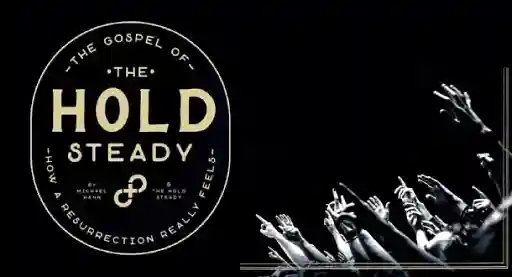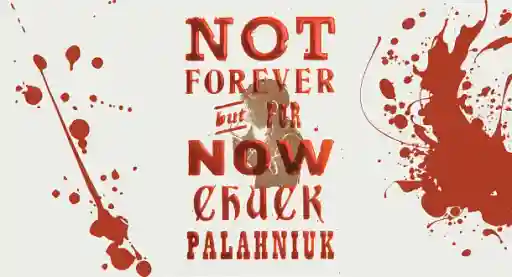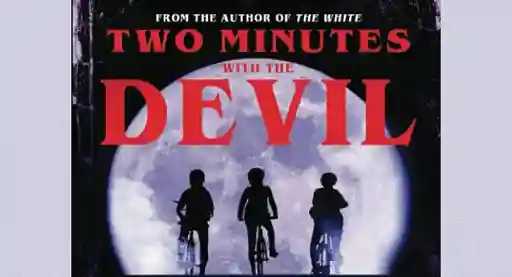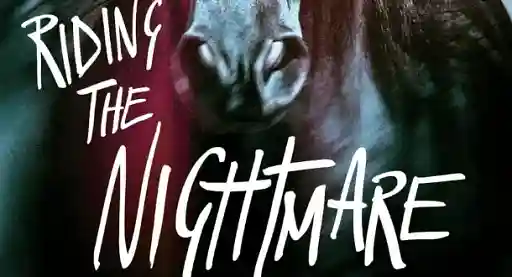Bookshots: Pumping new life into the corpse of the book review
Title:
The Scarlet Gospels
Who Wrote It?
The Archduke of homoerotic horror-fantasy himself, Clive Barker, author of The Books of Blood, The Hellbound Heart, Weaveworld, and Imajica.
Plot in a Box Lamentation Configuration:
Harry D'Amour and friends go to hell and back (literally) to rescue a blind old lady from the dastardly Cenobite known as Pinhead.
Invent a new title for this book:
When Harry Met Pinhead
Read this if you liked:
The Hellbound Heart, The Last and/or Lord of Illusion(s), the wackier Hellraiser movies, picturing Scott Bakula in your mind (clothing optional).
Meet the book's lead(s):
Harry D'Amour: the occult detective who first appeared in the short story "The Last Illusion," and was played by Scott Bakula in the film adaptation.
Pinhead: the sadomasochistic Cenobite who first appeared in the novella "The Hellbound Heart," and was played by Doug Bradley in the Hellraiser series of films (or at least the only ones that matter).
Said lead(s) would be portrayed in a movie by:
Harry: Scott Bakula, dammit!
Pinhead: Doug Bradley, dammit!
Setting: Would you want to live there?
NYC, New Orleans, and Hell—all of which are pretty interchangeable in this book. I'll pass.
What was your favorite sentence?
Whatever torments he had planned for these last victims—and his knowledge of pain and its mechanisms would have made the Inquisitors look like school-yard bullies—it would be worsened by orders of magnitude if any one of them dared utter that irreverant nickname Pinhead, the origins of which were long lost in claim and counterclaim.
The Verdict:
Alright, Barker fans, this is the one you've been waiting for... or dreading. Pinhead is back in print, for the first time in almost thirty years, for the first time AS Pinhead (the character goes unnamed in "The Hellbound Heart"), and he's making up for lost time. Bored with the mere torture of mortals, your friendly neighborhood sadist decides to overthrow his own order and take over hell. And we're not talking about Judeo-Christian hell, full of fire and brimstone and gnashing teeth. We're talking a post-apocalyptic fantasy world with its own cities and citizens and ruling hierarchy. This is hell on a grand scale.
Sitting atop the power pyramid is the Lord of Light* himself, Lucifer, who has gone all absentee-landlord on the realm. Pinhead sees his opportunity and takes it, and he would have succeeded too, if it weren't for those meddling kids, Harry D'Amour and his pals. They follow the Cenobite into hell after he kidnaps one of their own, the blind medium, Norma Paine. While they're there, they figure they might as well save the world while they're at it.
Whereas "The Hellbound Heart" doesn't delve into the gory detail about the Cenobites and their order, The Scarlet Gospels cracks their mythology wide open. Forget the wacky worldbuilding of Hellraiser II, and the laughable appliance-based Cenobites of Hellraiser III—this is the definitive backstory. And if I'm being honest, I'm not sure what fans are going to think.
This isn't the Pinhead of "The Hellbound Heart." The Scarlet Gospels doesn't have the hardcore horror of The Books of Blood. There is much more of a fantasy element. Barker has always straddled the line between genres, and while brutal, this is much more of an adventure. By giving Pinhead more backstory, Barker has stripped the character of what made him so terrifying in the first place—the unknown. We see him in his home and interacting with co-workers. He's not this unfathomable evil. We are privy to his hopes and dreams. It feels... weird. This definitely isn't where I pictured the mythology going.
But if you are less a fan of the movies and more of a fan of Barker in general, and are not attached to Pinhead as a horror icon, I'm sure you'll enjoy the ride. Barker is nothing if not inventive, and he applies those skills liberally, here. So forget Freddy vs. Pinhead, this is the ultimate showdown—Pinhead vs. Satan.
*Take that, R'hllor.

About the author
Joshua Chaplinsky is the Managing Editor of LitReactor. He is the author of The Paradox Twins (CLASH Books), the story collection Whispers in the Ear of A Dreaming Ape, and the parody Kanye West—Reanimator. His short fiction has been published by Vice, Vol. 1 Brooklyn, Thuglit, Severed Press, Perpetual Motion Machine Publishing, Broken River Books, and more. Follow him on Twitter and Instagram at @jaceycockrobin. More info at joshuachaplinsky.com and unravelingtheparadox.com.








